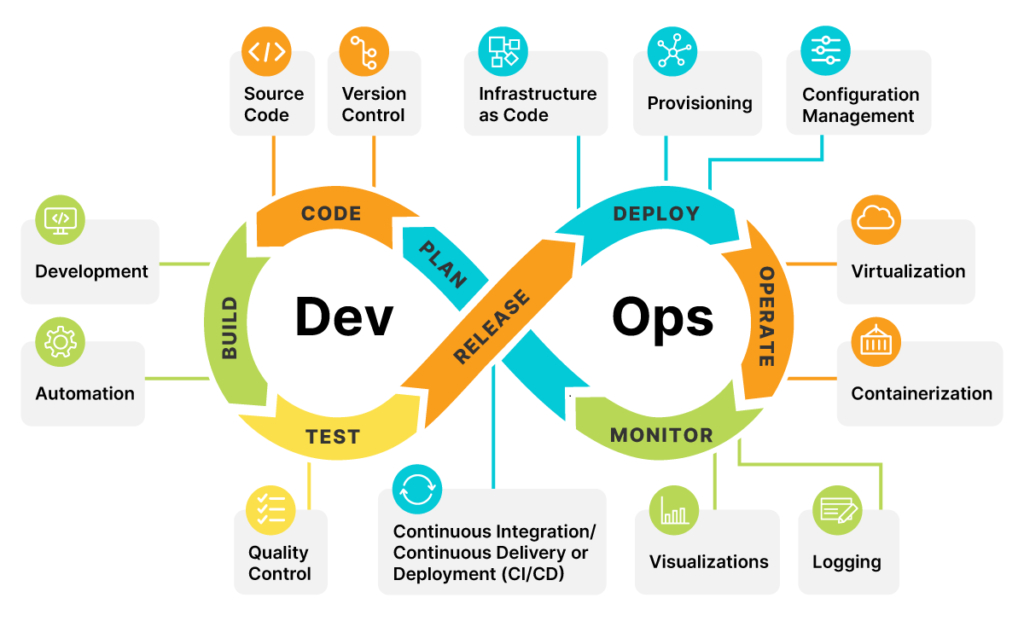Devops
DevOps is based on the principles of Agile software development, which emphasizes flexibility, iterative development, and continuous improvement. The DevOps approach involves breaking down large software projects into smaller, more manageable pieces, and using frequent feedback and collaboration to ensure that the software meets the needs of users.
The key components of DevOps include
- Continuous integration (CI): This involves regularly integrating code changes into a shared repository and running automated tests to catch any issues early in the development process.
- Continuous delivery (CD): This involves automating the deployment process so that code changes can be delivered to users quickly and with minimal risk.
- Continuous testing: This involves automating the testing process to ensure that the software meets the required quality standards.
- Continuous monitoring: This involves monitoring the software in production to identify and address any issues as quickly as possible.
- Collaboration and communication: DevOps emphasizes collaboration and communication between developers, operations staff, and other stakeholders, with the goal of breaking down silos and improving efficiency.

DevOps is changing the way software is developed and deployed, and is becoming increasingly popular among organizations of all sizes. Some of the benefits of DevOps include faster time-to-market, improved software quality, increased efficiency, and better alignment between development and operations teams.
To implement DevOps in your organization, you may need to invest in new tools and processes, and you may also need to train your team members on the DevOps methodology. It's important to take a holistic approach to DevOps, and to ensure that all stakeholders are on board with the approach and committed to its success.
